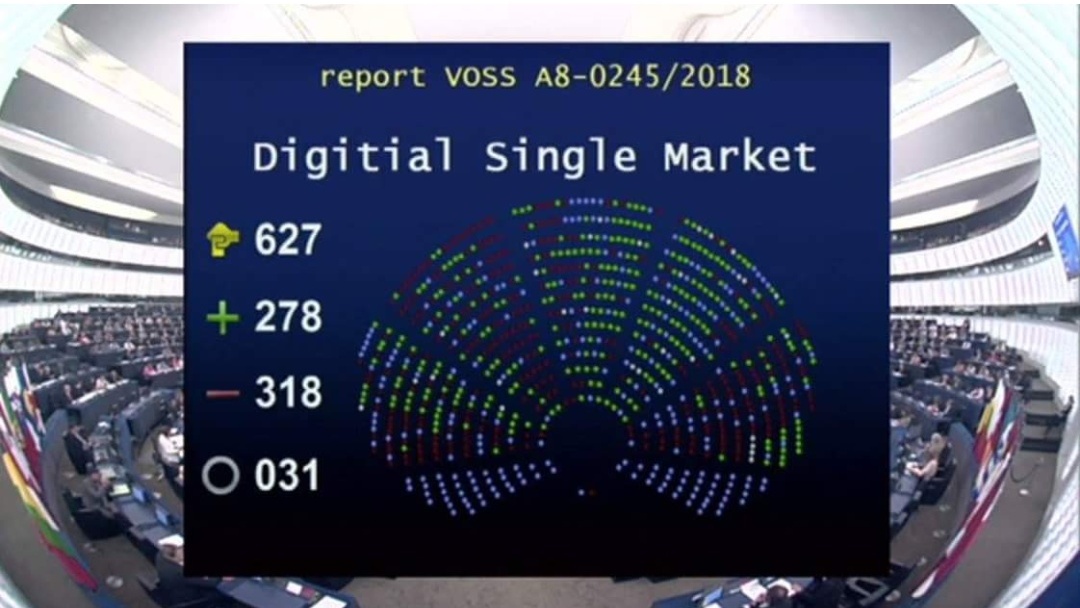Statewatch announces the establishment of a new observatory
Statewatch is one of the most prominent NGOs operating in the European plane. Established in 1991, it is an organization of lawyers, academics, journalists, researchers and other activists, focusing on the monitoring of activity of the Council of Justice and Home Affairs (JHA).
JHA is one of the 10 councils forming the Council of the European Union. It consists of the Ministers of Justice and the Ministers of Home Affairs of all the EU Member States. The Ministers of Justice work on judicial cooperation in civil and criminal cases, as well as in cases of fundamental rights violations. The Ministers of Home Affairs are responsible, among others, for immigration, border management and police cooperation.
The activity of JHA is intrinsically linked with fundamental rights. In this context, Statewatch establishes observatories from time to time. Every observatory focuses on a different topic of JHA’s activity. It records all the latest updates, collecting policy proposals, existing legislation, analytics, news from the media, campaigns, etc.
On 12 July, Statewatch announced the establishment of a new observatory. This observatory will record the latest updates on the interoperability of JHA’s databases. The notion of interoperability might seem hard to understand. However, it simply refers to the possibility of sharing data between two or more databases.
Statewatch warns that the interoperability of JHA’s databases will create a collective database, which will include all the existing and future JHA’s databases. Thus, it will be possible to combine biometric data (such as fingerprints) and other personal data, which are contained in JHA’s databases through one sole search.
As underlined by the Director of Statewatch, Mr. Tony Bunyan, “the time to ring the alarm bells is not when Big Brother is in place but when there are the first signs of its construction”.
Homo Digitalis will keep informing you on the latest news on the issue.You can read the press release by Statewatch here.
Three important studies examine the threats to free, impartial and transparent elections
The UK Information Commissioner’s Office (ICO) published today three new studies regarding personal data analysis for the promotion of political campaigns.
The first report is entitled “Democracy Disrupted? Personal information and political influence”. The objective of the study is to shred light on the use of personal data in the context of political campaigns. Moreover, this report includes ten (10) proposals for the legal and transparent use of personal data during political campaigns by political parties of the UK in the future.
The second report is entitled “Investigation into data analytics for political purposes – update”. The objective of the study is to inform the public on the new findings of the Authority in the context of its investigation, initiated on May 2017, regarding the processing of personal data in political campaigns. This investigation was launched subsequently to claims for secret processing of voters’ personal data and use of targeted political advertisements during the referendum on Brexit.
Furthermore, the report includes an analytical reflection on the recent regulatory acts of the UK regarding companies involved (Facebook, Cambridge Analytica, etc.), political parties, data brokers, organizations supporting political campaigns, etc. It is for sure that one of the latest acts of the Authority, which has caught the attention of the press, is the notice to Facebook, with which it informs the company of its intention to issue a fine of 500,000 pounds against it (around 565,000 Euro) for the violation of the Data Protection Act of 1998. It must be underlined that this fine was the maximum, which could be issued according to the then legislation.
The third report was concluded in cooperation with the investigation team DEMOS and is entitled “DEMOS report – The future of political campaigning”. This study analyzes the modern and future trends regarding the way in which various data are used during political campaigns.
Furthermore, the report describes the methods, which are widely known in the online advertising sector, and the way in which these methods are already being used or might be used in the near future for political campaigns. Finally, it mentions the risks and challenges which stem from data analysis for political campaigns.
EU: Freedom of online expression was saved!
The European Parliament rejected the Proposal for a Directive on Copyright in the Digital Single Market
5 July 2018 is a fantastic day for freedom of online expression and information.
Today, the European Parliament rejected the Proposal for a Directive on Copyright in the Digital Single Market with 318 against, 278 in favour and 31 abstentions.
As analyzed by Homo Digitalis, the dangers which could stem from this Directive were significant.
Consequently, the negative vote of the Proposal is a tremendous victory for freedom of online expression and information. The Internet is fortunately not going to change!
According to the legislative procedure, the Proposal for the Directive will return to the Legal Affairs Committee of the European Parliament, which will suggest amendments and will introduce the new Proposal to be voted in the plenary of the Parliament in September.
Homo Digitalis will keep informing you on any updates.
Today is a day of joy for all European citizens, who use the Internet.
For us, the joy is double, because part of this result is your accomplishment.
We would like to thank you all for embracing the endeavour of Homo Digitalis for the rejection of the Proposal, through the pressure put on the Greek Members of the Parliament through emails.
Let us not forget the words of the famous writer Helen Keller: “Alone we can do so little. Together we can do so much.”
We will all together keep fighting for our digital rights.
Thank you.
FRA published today the summary of his second report on surveillance by the intelligence services in Greek
The European Union Agency for Fundamental Rights (FRA) published its second report on the protection of fundamental rights in the context of surveillance by national intelligence services in October 2017. The title of the report in Greek is «Παρακολούθηση από τις υπηρεσίες πληροφοριών: εγγυήσεις και μέσα έννομης προστασίας των θεμελιωδών δικαιωμάτων στην Ευρωπαϊκή Ένωση – Τόμος ΙΙ».
For those who are not familiar with its work, FRA was established with the objective of offering independent and well-documented assistance and experts’ advice regarding fundamental rights in the institutions of the EU Member States. It is an independent EU institution, funded by the EU budget.
Considering the growing threats of terrorism, the cyber-attacks and the sophisticated transboundary criminal networks, the scope of the intelligence services has become more emergent, complex and international and the services may interfere gravely with fundamental rights.
The report of October 2017 is the second report published by FRA, subsequently to the request by the European Parliament for a thorough examination of the consequences of surveillance on fundamental rights. It is a continuation of the first report by FRA, published in 2015. This first report examined the legal frameworks on surveillance in the 28 EU Member States and analyzed them through the perspective of fundamental rights. In this way, the first report by FRA presented a comparative analysis of the legal framework on surveillance in the whole of the EU. The Greek summary of the first report is available here.
The second report is an updated version of the 2015 legal analysis, which also includes long interviews with various experts of certain EU Member States. It also includes 16 FRA opinions, which are based on the main findings of the report.Today, the Greek version of the summary of the second report was published on FRA’s website and is available here. It is worth noting that the Greek version of the summary is one of the first available translations in official EU languages.
Freedom of online expression and freedom of information need you!
You use the Internet on a daily basis to communicate, to get informed and have fun. But Internet as you know it might cease to exist, if you do not take immediate action.
What happened?
On June 20, 2018 the Legal Affairs Committee of the European Parliament voted in favour of the Proposal for the Directive on Copyright in the Digital Single Market.
The proposed Directive aims to harmonize the legal provisions in the Member States regarding copyrights, taking particularly into account the digital and cross-border uses of the protected content. In simple words, what the european legislator aspires to achieve is that all EU Member States are on the same page regarding copyrights in the contemporary digital single market. Everything seems fine up to here.
Nonetheless, the provisions of the proposed Directive and especially Article 13 are not safe from blunders and could jeopardize freedom of online expression and freedom of information.
Article 13 requires that Internet platforms use filters for any information uploaded by the users on the platform, in order to avoid copyright infringements.
What does this mean?
Content-recognition technologies will filter the posts of the Internet users to ascertain whether there has been a copyright violation in the content of the posts under question. Subsequently, based on the said filtering, the posts will be approved or prohibited. The risks from such a practice for freedom of online expression and information are obvious.
1. The Internet platforms will have excessive power
Under the new scheme platforms will have to filter the content, which they host, without any complaint regarding a copyright violation. Until now, legislation provided that content which violates copyright would get banned from the platform according to a procedure. This procedure commenced subsequently to a complaint filed by the alleged copyright owner. Now, any post will be subject to this filtering.
2. The available technology is not able to recognize posts which are made in the context of parody, criticism or reference for research and commentary
Although technology evolves rapidly, the available filtering mechanisms are not able to recognize the difference between legal and illegal content use, which is subject to copyrights, and which is used in research, commentary, even for criticism or parody (i.e. reference to artistic excerpts for commentary, reproduction of speeches for informing the public for current affairs, generation of parodies of a film -such as memes- or parodies of songs.
Therefore, the creativity of Internet users and freedom of online expression and information will be inevitably restricted. Additionally, the said filtering mechanisms will have to be supported by a whole army of employees of the Internet platform in question. These employees will proceed to a second phase of monitoring of all the posts for which the filtering mechanisms will have concluded that they infringe copyrights.
This is definitely a costly and time-consuming procedure and the extra cost for the extra employees might fall on the Internet user through a rise on the prices for Internet services or the introduction of annual or monthly fees in the various Internet platforms.
What can I do to prevent this?
On July 5 the European Parliament’s plenary will vote on the proposed Directive. Send today and email to the Greek Members of the European Parliament (MEPs) and call them to vote against the proposed Directive on Copyright in the Digital Single Market.
A full list with the contact information of all the Greek MEPs can be found here.
Remember that every email counts. We must unite our voices and request all together from the Greek MEPs to vote against the proposed Directive. The preservation of freedom of online expression and information concerns us all and is a vital prerequisite for the proper functioning of democracy.
If you want to save time, you can use the following template. However, we suggest that you personalize your message as much as possible and express also your own concerns.
“ Subject: Vote against the proposed Directive on Copyright in the Digital Single Market
Dear Ms/Mr (Name),
I am sending this message because on July 5, the European Parliament plenary will vote on the proposed Directive on Copyright in the Digital Single Market.
This act will drastically change the form of the Internet, as we know it, for the worse. It will restrict significantly the right to freedom of online expression and information for all Greek and European Internet users.
More specifically;
Creativity and freedom of speech will be significantly damaged, since algorithms are not always able to recognize the difference between legal and illegal use of content, which is subject to copyrights, and which is used in research, commentary, even for criticism or parody. If the use of this content is regulated by automated systems, which take decisions the letter and not the spirit of law, creativity and freedom of online speech, will be inevitably restricted.
There are no appropriate technical means to implement Article 13. There is no recognition technology, which can monitor successfully all the forms of content which are included in the proposed Directive (text, audio, video, images and software).
Therefore, it is absurd to expect from the courts of the 27 Member-States to constantly judge on which would be the most appropriate technical means for the implementation of the proposed Directive on a case by case basis.
The Internet service providers should not become responsible for the implementation of the copyright legislation, as prescribed by Article 13. In order to achieve their compliance and avoid fines and sanctions, the companies will prefer to become overprotective in regards to copyright, thus restricting freedom of expression.
Providing the companies with the right to delete content for copyright violations will give them excessive power, since there is no provision for the protection of Internet users against such deletions -even if their content is legal.
Taking into account all the above, I call you to vote against the proposed Directive. In this way, the text of the proposal will become subject to review, in order for the requisite balance between copyright protection and protection of freedom of online expression and information to be found.
With best regards,
(Name) “
Homo Digitalis sends an e-mail to the Greek members of the European Parliament
On the 20th of June 2018 the Legal Affairs Committee of the European Parliament voted in favour of the adoption of the Proposal for a Directive on Copyright in the digital single market.
The provisions of this proposed Directive, and more specifically the Article 13 that it includes, could be proven hazardous. The aforementioned legislation will change the Internet as we know it, only for the worse, setting serious limitations to freedom of expression and information of Greek people as well as all the internet users inside the European Union.
Before the voting process of this proposed directive, Homo Digitalis had contacted Mr. Chrysogonos, the only Greek representative in the Legal Affairs Committee, suggesting that he should examine in detail the Article 13 of the Directive. Mr. Chrysogonos proposed its amendment during the voting session. Unfortunately, his proposal was denied and the text was adopted from the Legal Affairs Committee. Read more about this here.
On the 5th of July the plenary of the European Parliament will be called to vote on this proposed Directive. If the voting goes through and in favour of this Directive, it will soon become a reality.
Thus, the last chance of reviewing this text, in order to ensure the required balance between the protection of copyrights and freedom of expression and information on the internet, is now.
Homo Digitalis noticed via e-mail all the Greek members of the EU Parliament to vote against this directive. See the e-mail in Greek here.
European citizens must act now and request from the Members of the European Parliament of their countries to vote against this proposed Directive on the 5th of July and protect the freedom of expression and information. Only if we unite our forces we will be able to send a loud and clear message.
Every e-mail to the Members of the Parliament is of utmost importance. Take action!
EU: Censorship on the internet? The first step is done
The European Union made the first step for the adoption of the directive that limits the freedom of expression on the Internet
On the 20th of June 2018 the Legal Affairs Committee of the European Parliament voted in favour of the adoption of the Proposal for a Directive on Copyright in the digital single market.
Before the voting process of this proposed directive, Homo Digitalis had contacted Mr. Chrysogonos, the only Greek representative in the Legal Affairs Committee, suggesting that he should examine in detail the Article 13 of the directive.
The Article 13 in detail:
The use of content from service providers of the society of information who save and provide access to a great bulk of material that is uploaded by the internet users.
The service providers of the society of information who save and provide access to a great bulk of material that is uploaded by the internet users, are getting, in collaboration with the beneficiaries, measures in order to ensure the function of the agreements which are appended with the beneficiaries for the use of their creations and other owned material or the deterrence of their availability again in collaboration of the two sides. The aforementioned measures, for example the use of effective technologies of content identification, are suitable and proportional. The service providers provide the beneficiaries with sufficient information concerning the usage and application of the measures, whereas, wherever needed, they file reports for the recognition and use of the material.
The Member States ensure that the service providers referred in paragraph 1 are establishing mechanisms of complaints and compensation available to users in case of any difference with the application of measures as referred in paragraph 1.
The Member States facilitate, on a case-by-case basis, the cooperation between the service providers of the society of information and the beneficiaries, hosting dialogue between the stakeholders, in order to clarify the best practices, such as the use of suitable and proportional content identification technologies, considering among others the nature of each service, the technology availability and their effectiveness in consideration of the technological advancements.
Specifically Homo Digitalis highlighted that article 13 may change the Internet as we know it.
– Creativity and freedom of speech will be severely harmed, because algorithms are not always in the position to identify the difference between the legal and illegal use of material, which is subject to copyrights and which is used in research, commenting or criticism and parody. If the use of all this material is managed by automatic systems which decide based on the letter and not the spirit of the law, then creativity and freedom of speech will be limited inevitably.
-There are no suitable technical tools for the application of the Article 13. There is no existing technology of recognition/identification, which can efficiently inspect all the kind of material that is referred in the proposed directive, which include “content, audio material, video material, images and software”. Therefore, it is irrational to expect from the courts of the 27 Member States to decide on which are the most efficient technical tools and means for the application of the directive in each case.
– The entities that provide Internet services should not be responsible for the application of the copyright law, as the Article 13 provides. In order to ensure their compliance and avoid fines and penalties, the companies will become all the more protective concerning copyrights, greatly limiting the freedom of expression. The provision of the right to proceed in deleting content as a result of copyrights violation, will overpower those companies, because there is no possibility provided to the users to challenge such deletions, even if the content was legal.
Mr. Chrysogonos proposed its amendment during the voting session. Unfortunately, his proposal was denied and the text was adopted by the committee of Legal Issues. However, this was only the first stage from where this proposed Directive had to pass until it becomes a part of the EU legislation.
It is highly possible that in the beginning of July, a voting session of the plenary of the EU Parliament will occur for this text, for which the committee voted in favor of. Finally, the European Parliament will be called to vote if this proposal will become a directive. This is expected to occur possibly either on December 2018 or January 2019.
It is obvious that that we are still in the beginning of the road for the adoption of this controversial directive. Homo Digitalis will continue to inform you on any news or advancements in this case, while concurrently fighting with all its means to ensure that the Internet remains a means of free expression and sharing of ideas.
Homo Digitalis signs the open letter on Artificial Intelligence and Robotics
Homo Digitalis signs the open letter to the European Commission on Artificial Intelligence and Robotics
Artificial Intelligence and robotics constitute an ever-increasing part of our everyday lives. It seems that robots or robotic applications will be used in many aspects of our lives in the near future. Therefore, it crucial that an adequate legislative framework is created, regulating their activity, safeguarding the principles of democracy and human rights. This framework should not only be examined from an economic and legal perspective, but there must be a holistic approach to it, which will include sociological, psychological and ethical aspects.
In this context, the European Parliament with a resolution proposed to the European Commission:
“the adoption of a legal instrument on robotics in the long term, so that at least the most hi-tech, autonomous robots are recognized as electronic persons, having liability for any damage they cause and potentially implementation of this electronic personality in cases in which robots decide autonomously or interact independently in any other way with third parties”.
Scientists and manufacturers specializing in Artificial Intelligence and Robotics, law professionals, health scientists, university professors in the related fields, as well as organizations operating in the aforementioned fields, as well as ethics, address the European Commission through an open letter regarding the proposal by the European Parliament.
Their purpose is to support the drafting of a legal instrument in the European plane, which will regulate robots’ activities, safeguarding human rights and limiting the risks, which may be caused by their acts. They believe that the European Commission should create a feasible legislative instrument for innovative and responsible progress in Artificial Intelligence and Robotics, resulting in the enjoyment of even more benefits for European citizens and the European single market.
However, the experts underline that:
- It is necessary to adopt a holistic approach for the creation of the regulatory framework.
- From an ethical and legal aspect, it is impossible to create a legal personality for robots, which will be based on any existing law system.
Homo Digitalis is one of the signatories of this open letter, represented by its President, Ms. Elpida Vamvaka.
If you belong to the persons or organizations,which can and wish to sign the letter, thus adding to the endeavour being made before the European Commission, you can do so following the link:
Letter by Homo Digitalis to the Greek Parliament: Reinforcement of the Independent Authorities
On 30 May 2018, Homo Digitalis submitted a letter to the Greek Parliament, addressing all the political parties and the independent Members of the Parliament, regarding the reinforcement of the Personal Data Protection Authority and the Authority for the Confidentiality of Communications with adequate human, technical and economic means, in order for their objectives to be successfully carried out.
The letter was also communicated to the two Authorities and particularly to their Presidents, Mr. Menoudakos and Mr. Zampiras respectively.
You can read the letter in Greek here.








